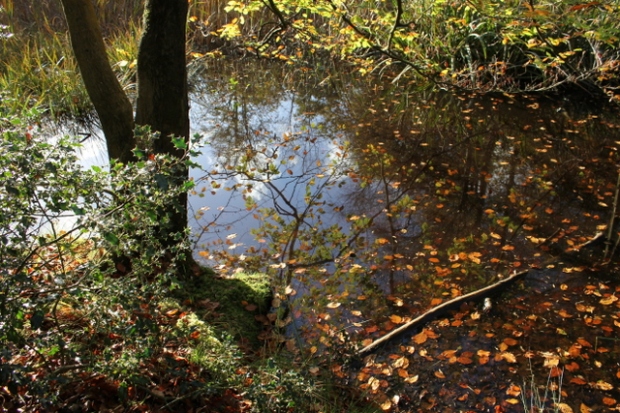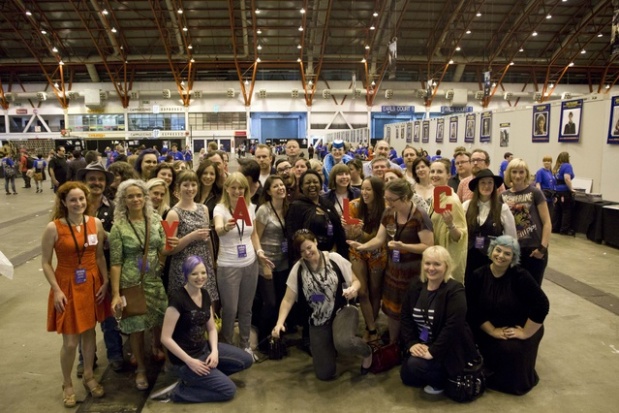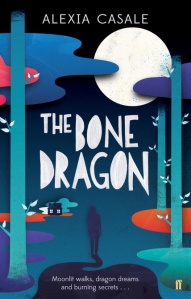All traditionally published writers will be more or less familiar with getting ‘feedback’ by the time their book comes out, but reviews are different thing altogether.
Feedback from family, friends, colleagues, friends of friends who are in the book industry, agents, editors, and other people at your publishing house comes in so many different forms that you start to ask yourself ‘how different can a review be?’ The answer is very different, especially in terms of what reviews feel like.
The big difference between a review and feedback is that reviews are generally formal: they look and sound official. Usually, they’re carefully crafted and well-edited. They’re pieces of writing in and of themselves.
Feedback, on the other hand, is often spoken, jotted down or written purely as information. Moreover, feedback is generally geared to unfinished/published work: there’s a sense that the purpose is to inform the writer about your thoughts while there’s still time for this to have an impact. For this reason, feedback given after a book is published usually looks forward to the author’s next book.
The critical thing is that the purpose of written feedback is to communicate with the writer. The purpose of a review is to communicate with the reviewers’ readers. So reviews have a life apart from, though closely connected to, the work they critique. Feedback doesn’t seek to led a separate existence or appeal beyond its usefulness to the book and/or the writer’s other work.
It’s only when I read my first review that I realised how different receiving reviews feels to receiving feedback: how different it is to hear what people think of a book that is done, printed, bound, published and ‘out there’ for strangers to see. It’s certainly more daunting, but with good views there’s enormous confidence to be gained from the fact that they feel permanent because they’re about the finished product. Feedback often feels transient because it relates to a particular incarnation of a work in progress, so it’s harder to decide whether you should store it inside your head to bring out on days when Nothing Works and Everything You Write is Cr*p.
Also, feedback is usually provided by someone with a vested interest in you and/or your work: even freelance editors are not entirely dispassionate, and certainly your agent and editor won’t be. In all three cases, their investment is professional and their feedback is grounded in how they think you book will do: something which will affect their own careers to a degree – at least in as far as their judgement proves correct or incorrect. But reviews are often written by complete strangers. And of course these strangers have their own vested interests in books and literature and all sorts of things – but usually those interests don’t relate directly to the writer. So they feel independent, though they aren’t really any more objective because reviewing is, ultimately, a highly subjective business.
Feedback is invaluable. It’s what makes a writer a better writer. It’s what helps you improve and learn and develop. It’s how you write the best book you can. It’s how you fix problems with a flawed draft that could be a great book. It’s what keeps you going.
But reviews are what you measure your work against. Have I suceeded in writing the book I wanted to write? Did I really communicate the things I wanted to? Have the key issues and questions come across? Has the book worked? Do people like it? Feedback gets you to the point where reviews can give you the answers.
So here, with huge, enormous thanks to the wonderful people who took the time to read my work and write down their thoughts, are the initial reviews for The Bone Dragon. Thank you all ever so much.
Read the first 15 pages at Sugarscape or Wondrous Reads.
The Bone Dragon is in the running for the First Book Award from the Edinburgh International Book Festival and eBooks by Sainsbury’s. If you like it, please vote here by 14 October 2013. If you want to hear more first, why not come along to hear me speak with the brilliant Tim Bowler at the Festival: 25 August 7-8pm.
The Bone Dragon is on the Financial Times Summer Books Guide! “… Beautifully written, poetic and haunting, this is a superlative debut.”
Edinburgh International Book Festival: “…The Bone Dragon is a modern dark fairytale that straddles Adult and Young Adult genres of fiction and has garnered significant praise from literary critics. … The Bone Dragon is a novel that thrives on ambiguity, and Casale is extremely proficient at using it as a literary device. The nature of Evie’s abuse is alluded to but not immediately explained, leaving the reader’s imagination to run riot with what she might have suffered. Similarly, it remains unclear whether the dragon has really been magically brought to life or whether Evie’s active imagination and internalisation of her trauma is responsible. Perhaps the Dragon is just a manifestation of her desire to be brave and take control of her pain. Either way, it is an excellent method of driving the plot forward and allowing Evie to grow, plus the addition of a fantastic supernatural guide steers the novel away from angsty, kitchen-sink tales of teen abuse and into far more poetic and surprising territory.”
Geraldine Brennan, The Observer (The Guardian) reviewed The Bone Dragon alongside Malorie Blackman’s Noble Conflict, Emily Murdoch’s If You Find Me, and Natasha Farrant’s After Iris in the Summer 2013 Teen Books roundup, calling it “a striking debut novel”: “The metaphor is not overlaboured and the dragon breathes fire into the fantasy adventure episodes, which have a flavour of Alan Garner.”
Suzi Feay, Financial Times (5th May 2013): “In a beautifully crafted narrative that constantly confounds expectation – her friends are kind, her foster parents are saintly – the final act is anything but comforting. Sometimes anger and vengeance aren’t just understandable but essential tools for survival.”
Michael Codron: “A work of startling imagination, that holds you to the last page.”
Wendy Cooling: “Loved The Bone Dragon, gentle and wonderful and hard to put down.”
Lindsay Foley, Weekend Editor Sugarscape: “Absolutely hypnotic”
Mary Byrne, Hay Festival’s Children’s Programmer: “[Alexia Casale] writes beautifully – a complete pleasure to read”
BookTrust: “There are numerous young adult novels dealing with dark subjects such as bereavement, illness and abuse, but The Bone Dragon stands apart from the crowd. Bold, brave and often unsettling, this tale of a teenage girl profoundly affected by a past that she cannot talk about – even to herself – is also both understated and beautifully-written. As well as dealing with challenging issues, with its positive and thoughtful depiction of adoption and adoptive parents, it is a tribute to unconventional families and friendships of all different kinds. An intriguing blend of psychological thriller and fantasy, this is an impressive and unusual debut.”
Sugarscape: “If you like a book that’ll make you think then The Bone Dragon is definitely one for you. Unsettling and at points uncomfortable, this clever novel gives insight into the bruised mind and makes you ask the question; where does reality end and fantasy begin? … Chilling and utterly hypnotic, this will leave your mouth wide open and every bone in your body tingling as it reaches its chilling conclusion.”
We Love This Book, review by Tracy Eynon: “This powerful opening scene is the beginning of Evie’s acceptance and understanding of her past. … This book is the debut of an exciting and mature young writer who shows real skill in writing about the little details of life, bringing a realness to her characters and making the situations she writes about so very believable. The Bone Dragon is a story that combines escapism with the acceptance of reality; of coming to terms with the past by embracing the future. Intriguing, compulsive and wholly absorbing, Evie’s tale is beautifully told and is ultimately warm and uplifting. Written by a young writer who has struggled with dyslexia it is also extremely inspiring, and a rewarding read for both young and older adults.”
Luna at Luna’s Little Library: “The Bone Dragon is wonderful, magical, touching, mysterious, fantastic, unique and so many other words I could use. I love this book. It will be a story that will forever have a special place in my heart. … there is so much about Alexia Casale’s book that is truly outstanding. I feel I should be filling pages of how effective and beautiful her writing is. … Evie is a rare gem in narrator, both lovable and true. … The Bone Dragon is special. Read it.”
The Bone Dragon is among Luna’s ‘Top Ten Books I’ve Read So Far in 2013’ and was also Luna’s Book of the Month #12. And it has lovely mentions on Stacking the Shelves #40 and is on the VIP Bookcase. Luna also talked about The Bone Dragon in her Around the World post at Falling for YA. Luna was the first person to read and comment on The Bone Dragon and has been so amazingly generous in telling people about the book and giving it space on her blog and in guest-posts for other blogs. Thank you *so* much.
Michelle at Fluttering Butterflies picked The Bone Dragon as her Book of the Month for June! “I absolutely loved this book. It’s been a long time since I’ve read a book that had such an emotional impact on me. I loved that while The Bone Dragon does contain some darker elements to it, it is still very much a book about healing and about love. I loved how fantasy and reality twined together in this story, I loved all of Evie’s relationships with friends and family, I loved that I was able to connect to it in such a fierce way. I really recommend that you find yourself a copy of The Bone Dragon by Alexia Casale sooner rather than later…”
In a recent guest-post introduction, she also provided a further ‘snapshot’ review: “I can say that without reservation, The Bone Dragon by Alexia Casale is my *favourite* book that I’ve read all year. I loved it wholly and completely and I absolutely fell under its spell. I thought it was emotional and beautiful and I really do recommend that you go out and immediately and read it.”
Jake Hope, Lancashire Libraries: “I read it in one sitting and found it utterly captivating and beguiling. The manner in which juxtaposed issues of abuse, neglect against those of family, friendship and belonging were deeply impressive and highly affecting. The dragon which Evie carves with the help of Uncle Ben feels an excellent analogy for the level of meticulous detail and craftsmanship within the story, with its careful interplay between gritty realism and magic. It feels like a fable for our time, highlighting the way in which our pasts continue to exert influence over our present. I’m going to recommend it to our Virtual Schools team who look after the education of children who are looked after in residential care, a lot of the experiences and feelings that Evie undergoes will resonate particularly with these young people and I think it could definitely help to contextualise their own lives and pasts.”
Katie at Storytellers, Inc.: ” won’t explain how a rib becomes a dragon, or how it opens up the nightscape to Evie, who is so often crippled by pain in the daytime but comforted by the sharp feelings of being alive and awake in a world that should be confined to dreams. The dragon is more important to Evie than it is to her story. And that’s sort of what makes The Bone Dragon that much more interesting that other books that deal with this subject – ‘this subject‘ being domestic abuse – because really we learn very little about what Evie has been through. Casale doesn’t even think about dwelling on the details in that uncomfortable way that those ‘tragic life stories’ so proudly advertise (surely more sick lit than any John Green!). Yes Evie has had a traumatic time but she doesn’t want to talk about it, to her friends or to us, the reader. It’s a brave move that might leave some readers feeling a little (wrongly) mystified; but for me it’s the stand-out feature. Evie is a sweet narrator, honest and endearing and she doesn’t ever really sound like a victim because she’s constantly reminding herself how loved she is now, firmly putting the past behind her and trying not to let it ruin the life in front of her. She’s also wonderfully youthful, which sounds a strange thing to say about a 14 year old and of course may well be a side effect of the abuse she has suffered but she’s in no hurry to grow up and that is so refreshing. … Phee and Lynne have their own serious problems too so it’s unfair to write them off as sideline airheads and Evie wants (needs) their friendship more than she initially realises. Again this is a smart underplaying of a serious topic; Casale’s simple subtlety speaks volumes. Overall, it’s an impress debut and I’m already looking forward to seeing what comes next. For a book so full of ‘issues’ it comes less like a punch in the face and more like a slow creeping presence. The Bone Dragon enters quietly in a dignified puff of dream-like smoke and the gentle pull of his unusual tale might curl around your consciousness for days after you’ve finished reading.”
Laura at Sisterspooky: “I utterly adored this book because it gave me a way of understanding what it’s like to struggle with issues as big as these without ever having experienced them personally. That’s a real credit to the writing ability of Alexia Cassale. She’s a hidden gem of writing and I’d be surprised if this book doesn’t get continual praise upon its release date. It really did break my heart at times seeing Evie struggle so much even after all she’s been through. The fantasy element really is such a clever way of discuss issues that are so difficult to approach because they are just that awful to even think about. A truly wonderful book that has the power to make you wish for a bit of magic to exist in the world for those that need it.”
Chrissi Reads: “I was really impressed with The Bone Dragon. It’s such a great debut novel, it felt like Alexia had been an established writer for years. Her story-telling skills are so impressive. I didn’t expect to be moved as much as I was by this story and particularly Evie. The Bone Dragon is a raw and powerful story which for me, could’ve easily been longer and I would’ve still loved it. It’s got a wonderfully magical element which really works. … Alexia Casale has created such a wonderful, interesting character with Evie. She makes the reader really take Evie into their hearts. I’m so surprised at how much I loved Evie. I felt like I knew her. She had that much depth and credit has to be given to Alexia’s talented writing skills because of this! The Bone Dragon is a perfect mix of mystery, magic, pain, loss and truly lovable, relatable, real characters. I wholeheartedly recommend it.”
Betty Maguire at INIS: “The story’s opening, with Evie awakening in hospital after having a section of her ribcage removed, immediately grips the reader and draws them into the plot. Throughout the novel the author makes excellent use of the narrator’s voice, while the other characters are distinctive and realistic. … One of this book’s strong points is that not all of these questions are resolved at the end and the reader is left to ponder and to try and resolve some of those issues … Difficult themes are tackled in this story such as abandonment, abuse, betrayal, bullying and vengeance, which is skilfully reflected through occasional references to Hamlet. This is not an easy read, but it is a very worthwhile one.”
Annabelle Hammond at Read, Write and Read Some More: “The Bone Dragon is such a powerful debut novel. …I wasn’t expecting such a raw and powerful story with such a strong main character. Alexia Casale has shown that she is a talented writer who can pack such an emotional punch in her prose. The Bone Dragon left me wanting more, I couldn’t believe when it ended, I wanted the novel to continue so I could learn so much more about Evie. It’s an emotional ride that’s mixed with mystic and magic, set against the vivid backdrop of the fens. … I am still surprised at the sheer depth to the character and how real she felt. It really feels like I know Evie after reading this book. She is an unforgettable character and one that will stay with me for a while yet. … The Bone Dragon is… There are so many ways I can start this sentence but none of them seem to fully fit the emotion and power this novel has hidden in its pages. You have some incredible characters that are all so realistic, each with their own little flaw. I particularly liked how Evie could tell by certain things that her adoptive parents were lying. It’s these small details that add to the depth of the storytelling and make it even better. If you’re looking for a promising new writer, then Alexia Casale is the one you want. The Bone Dragon has the correct mix of mystery, pain, adventure, happiness and of course an enchanted dragon. It’s a book that, not only will you enjoy, but it will also stay with you for a long while. So there you have it, I don’t even want to say goodbye but this review is already long. The Bone Dragon is simply a book that you should all read.”
BookBabblers: “The Bone Dragon is an outstanding debut novel by Alexia Casale. It is a dark, magical story about fourteen year old Evie who has to undergo major surgery and have a rib removed. … It is an absorbing plot that blurs reality and fantasy, I was completely hooked. Friendship is also an important aspect of the novel and the relationship between Evie and her two close friends Phee and Lynne is prominent throughout the book. This is a beautifully written book that is full of mystery, suspense, friendship and hope. It is a powerful read that is like a modern day coming of age story. I did not want to put it down and can’t stop thinking about it now that I have finished. I loved the cover of this book, it’s one of my favourite covers of the year so far.”
Children’s book of the week, Dudley News & Worcester News (25th May), review by Lynley Myers: “The Bone Dragon is an enchanting young adult novel steeped in mystery, and will keep young readers guessing until the very end.”
Emily Gale at Readings (Australia): “Evie’s voice convincingly navigates us through both her wisdom and her anguish. At 14, she’s suffered more pain than many of us will in a lifetime, but this is no misery memoir. Through her dream-like visions and the difficult conversations she has with those trying to help her adjust, we learn just enough of her past to understand what she’s up against. However, the focus is on dealing with the present. … While the dragon is a regular fixture, overall the story is fairly light on the magic realism elements, leaving just enough room for the reader to interpret what is happening.”
Editor’s Choice: Trinity Hall College (Cambridge)
Lauren Smith at Violin in a Void [SPOILER ALERT!]: “At first glance, The Bone Dragon looks like a fantasy novel, but in truth it’s more a psychological drama that walks a fine line between fantasy and realism. … It does however, make The Bone Dragon one of the most sophisticated and psychologically compelling YA novels I’ve encountered. As I read, and then as I went through my review notes and re-considered the story, I was increasingly impressed by the psychology of Evie’s character. … I was struck by how dark this novel. It’s not something you notice at first glance. After all, it’s not bleak. Evie is strong, she’s recovering, she’s got a wonderful family. The plot isn’t depressing: there are many happy moments with Evie’s friends and family, we see her work through her problems, and of course she has her magical dragon. And as I mentioned, you don’t relive the abuse with Evie. But there are grim, brutal things that very quietly crawl in under your skin. … Then there’s the ending, which I think would could spark and interesting discussion because that’s where the issue of the dragon’s reality becomes the most important. I think these things creep up on you because it’s not a dramatic book. It just calmly gets on with its very serious, painful and even shocking subject matter, while making room for the positive, heartwarming stuff too. And then it stays with you for a while after you’ve finished. I like Evie more than a lot of YA characters I’ve read, even though she scares me a little. The Bone Dragon is also a more mature and emotionally complex kind of YA than the kind I normally find myself reading, and I appreciate that. Not that I necessarily prefer all my books to be grim, but it’s good to see the genre handling something with such gravity too.”
Catriona Morrison, Waterstones: “An outstanding and heartwrenching adventure What a wonderful, magical and touching book. Evie is a character worth remembering forever.”
Waterstones Picadilly Circus, in-store review: “A magical story about love, friendship and survival. Absolutely Spellbinding..”
Another Waterstones Bookseller review: “How dark is The Bone Dragon?! I was completely taken aback by how well written this is; the descriptions of Evie’s midnight walks with the dragon are stunning. A really unique blend of fairytale and brutal real life. I love that teen fiction is getting a bit more serious”
George Hanratty, Tales on Moon Lane Bookshop: “Alexia Casale’s debut novel is powerful, compelling and moving. I couldn’t put it down.”
The Bone Dragon was also a Staff Pick at Dubray Books for the week June 24-June 30.
Hive’s Recommended books to read this month: “is it for the young adult or the adult? Well I truly don’t know. … [I] feel quite justified in endorsing this as a credible read for both. Evie is 14, she is adopted and her adoptive parents are loving and kind but, and this is a big but, they also have a tragic back story and this is what makes this such a great read – is it a fantasy/fairy tale, is it a psychological thriller, is it about being a teenager and rebelling? It’s all three plus a lot more. … I hope you will read this, as one of many debut writers for 2013, Alexia Casale, has written a most unsettling and challenging novel and deserves success.”
Bibliobeth: “This was a stunning, gripping piece of work that I couldn’t believe fell into the realms of YA, as it’s been a while since I’ve read a YA book with such passion and beauty. The magical undertone I’m always a bit of a sucker for, but it was the style of writing and the blend of both the information you are given and that which you have to work out yourself, that had me hook, line and sinker. My favourite characters were Evie, her Uncle Ben and the Dragon (obviously!) which were beautifully realised and completely compelling. … [a] rich and captivating tale. Would I recommend it? But of course!”
Droplets of Ink: “Unsettling, revelatory and reflective in equal measure, this is a carefully plotted and reflective debut novel by a talented new author who is definitely one to watch.”
Victoria Park Books: “very unpredictable and v edgy. U don’t which way she’ll jump.”
The Bone Dragon selected as one of the top YA reads in May for Mr Ripley’s Enchanted Books Blog
Emma Carroll (author Frost Hollow Hall): “I couldn’t wait to read this book, and it didn’t disappoint. Right from the first page, I knew I was reading something special. The first person narrative powers along, making you feel Evie’s every twinge. Yet don’t be fooled- this is not a straightforward redemption narrative. Evie’s viewpoint is dangerous, often warped by the trauma she’s experienced. At times it’s difficult to trust her; there were moments in this book where I felt genuinely scared for the other characters. The language is poetic, yet for me the most moving parts were where Evie battled to articulate the complexity of what she felt. Oh, and I LOVED the final pages. A very memorable book.”
GoodReads (various), including Karina: “Strange and beautiful and fierce and dark, this is a wonderful twist on the coming of age narrative. Just brilliant – go read it!”
Amazon (various), including Lysistrata [mini SPOILER ALERT]: “This is an astonishing book, life-enhancing and beautifully written, ostensibly for Young Adults but with the power to enchant and move older adults as well. … The nature of the horrors Evie has been through are never spelled out but their consequences are. … It is totally original and does not follow the trend for vampires or dystopias. It is much more frightening. It shows the raw emotional power of a very angry young woman who is right to be angry with a world which has colluded in mistreating her. There is a spectacular and satisfying ending … The psychological depth of the book will intrigue adults; younger readers can revel in the fantasy of owning a Dragon.”
and bookmoviefantatic: “Never judge a book by its cover or title. This is good book but a sad story of a teenager thats suffers horrific abuse.”
and MissFusspot: “This is a very interesting and compelling story, with some almost magical moments. I am not a big one for fantasy/mystical type stuff but this somehow crosses the boundaries for those of us who are a bit sceptical about that kind of thing. Some of it is set at night time in the Cambridge fens, and after reading it you almost feel like you have been out there yourself. It reminded me how amazing it can be to be around nature and to just let yourself experience what’s around you without the usual everyday distractions. There is enough room for you to use your imagination with this story, and some of it feels almost cinematic – but certainly not too in-your-face. I could really believe in the main character, Evie, and wanted to know how things turned out for her and how she would deal with all that was happening in her emotions and her life. It also had plenty going on with other people and events aside from Evie’s inner life, which helped drive the plot and keep you turning the pages. I found the ending pretty pleasing, and while you don’t find out everything, there is enough of a punchline to make you feel satisfied, and it is quite a witty conclusion. I would definitely recommend this book, and I may well read it again. I am 43 but I didn’t really feel like I was reading a book for teenagers. It is a book with a teenager in it but anyone can enjoy it. … PS Don’t buy the kindle version, the actual book is beautiful…I regretted getting the kindle version when I saw the actual one!!”
and A Philosopher: “The Bone Dragon, by Alexia Casale, is an expertly crafted page-turner. At first pass it appears to be a modern day coming of age story about a fourteen year-old girl coming to terms with the abuse she suffered in the past, aided by a feisty magical dragon. But The Bone Dragon is so much more. As an adult reader, I found much in this book to stimulate reflection and discussion. … The author’s clever use of layers of meaning and subtle hints (e.g. the meaning of flowers) blurs the boundaries between reality and imagination. … I rarely keep books of fiction but this is one I will find a space for and come back to read again as I think I will find new insights with every reading. I will also buy copies of this book for my younger friends”
Buy it now from Waterstones, WHSmith, AmazonUK, AmazonUSA (Kindle only for now), the Telegraph bookshop, Sainsbury’s e-books, Lovereading4kids, Barnes & Noble (USA, Nook only for now) and of course don’t forget your local independent bookstore (click here to find a bookstores near you in the UK or here for the USA).











